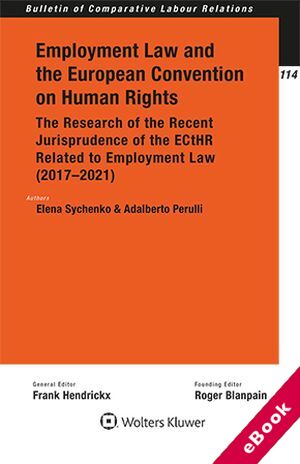
The device(s) you use to access the eBook content must be authorized with an Adobe ID before you download the product otherwise it will fail to register correctly.
For further information see https://www.wildy.com/ebook-formats
Once the order is confirmed an automated e-mail will be sent to you to allow you to download the eBook.
All eBooks are supplied firm sale and cannot be returned. If you believe there is a fault with your eBook then contact us on ebooks@wildy.com and we will help in resolving the issue. This does not affect your statutory rights.
Employment Law and the European Convention on Human Rights is an indispensable and first-of-its-kind book to extensively survey and analyse recent European Court of Human Rights (ECtHR’s) cases relevant to employment law. It delves deep into the informed structural analysis of more than fifty cases considered by the ECtHR during 2017–2021, many of which have not heretofore been considered in the legal literature. In recent years, the tendency of the ECtHR to treat human rights as indivisible and consider cases relevant to employment has contributed significantly to jurisprudence relating to human rights at work in the Council of Europe.
What’s in this book:
The authors examine, in particular, the following topics raised in the jurisprudence of the ECtHR:
The authors explore the reasoning that led the ECtHR to broaden the scope of Article 8 ECHR, which protects the right to private life, to develop new employment rights. They also describe in depth the impact of International Labour Organization (ILO) standards on the Court’s jurisprudence. How this will help you: As a clear, concise and user-friendly guide to the applicability of ECHR for the protection of labour rights and human rights at work, this book is of pragmatic value to labour lawyers in articulating the legal positions of the ECtHR which might support individual and collective labour rights protection in national proceedings. Academics in the field will appreciate the authors’ clarification of the trends of the ECtHR’s reasoning, especially with respect to the right to workplace privacy.